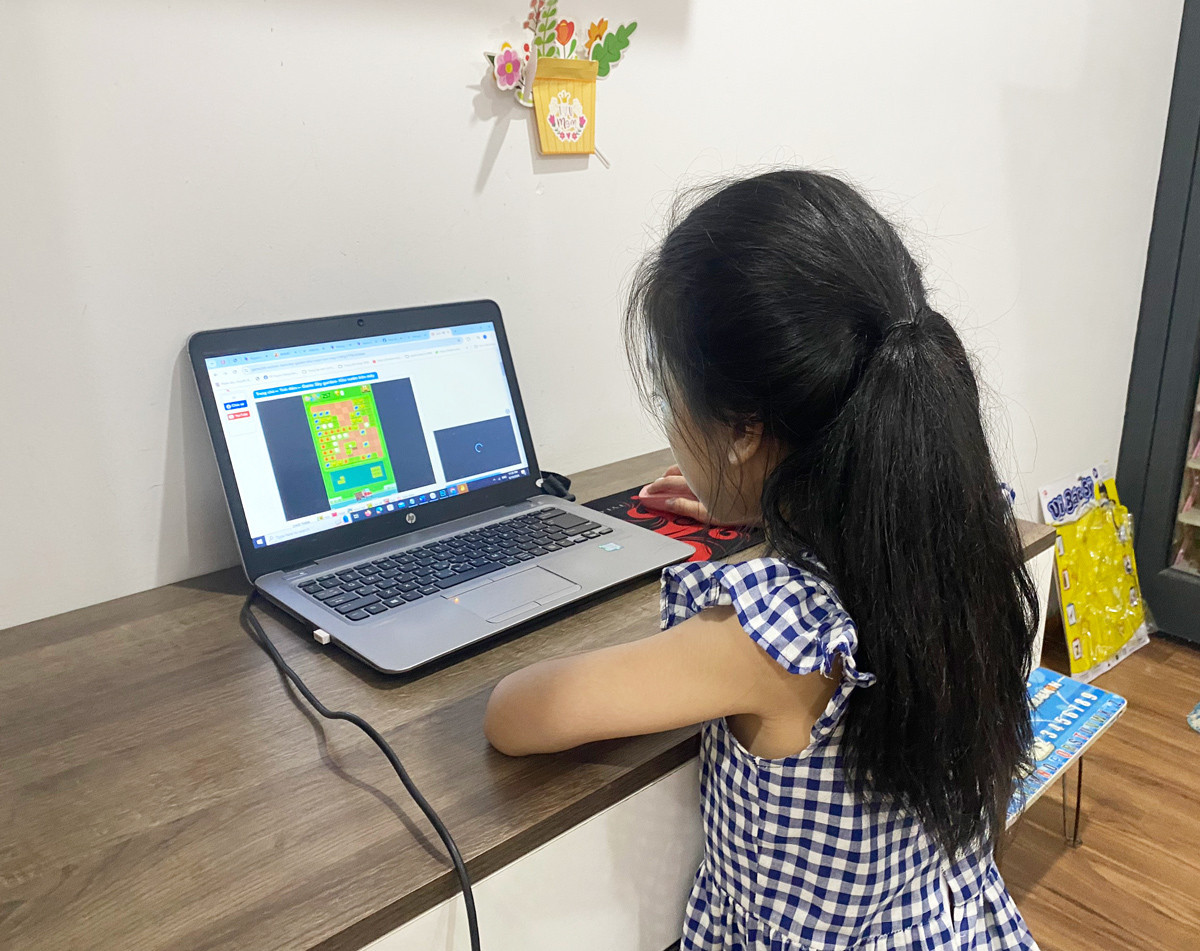
Lan Anh, an office worker in Thanh Xuan district in Hanoi, works every day. There is no one taking care of her daughter, who has to stay home as the summer has begun. Anh checks a security camera once every 30 minutes to see if there are any problems at home.
In the morning, before leaving for work, she repeatedly tells her 8-year-old daughter not to open the door to strangers and be careful of fire. Even when the girl promises to be obedient, Anh still does not feel calm where she is away at work.
She knows that in summer, her daughter has more free time and spends time on TV and social networks. Anh doesn’t want to prohibit the girl from accessing the internet regularly like other parents, because she understands that her daughter would feel bored without TV and social media.
However, she is worried that social networks may spoil her daughter. She doesn’t want the girl to access the "ugly internet culture" as she calls it.
Anh is thinking of sending her daughter to a center which keeps children during the summer holiday. She knows that a new expense item will burden the family’s budget, but believes this is the best solution.
A survey by UNICEF (the United Nations Children's Fund) in 2022 found that 82 percent of Vietnamese children aged 12-13 use the internet every day. Meanwhile, the Ministry of Labor, War Invalids and Social Affairs (MOLISA) reported that Vietnamese children spend 5-7 hours on social networks a day.
A report by the Center for Health and Population Initiative shows that 36.5 percent of children experience information and images related to violence, and more than 13 percent of children are exposed to unwanted pornography.
The regular access to social networks is believed to be the major reason behind the negative impact on children.
Solutions
Vu Viet Anh, CEO of Thanh Cong Academy, said social networks can benefit people, but if they are misused, they will harm children.
Social networks help children develop, find new knowledge and connect with friends all over the world. However, they also may lead them to social evils and misbehaviors.
Therefore, instead of prohibiting children from accessing social networks, parents need to guide their children on how to use social networks in the most effective way. There are some principles that parents should follow.
First, protect privacy and personal information. Children using social networks should be guided by their parents on how to set up a security scheme for social network accounts.
Parents need to warn children against sharing sensitive information with other members of social networks, especially information about phone numbers, addresses and passwords. Also, they need to talk to their children about the tricks and scams on social networks, such as seducing users to download games and logging in to web links.
Second, be cautious with relations on social networks. Though the major role of social networks is making friends and exchanging information with friends, parents need to tell children to be skeptical about new relations on social networks. Children need to be warned against meeting directly with friends on social networks and be aware of the risks they face when sharing personal information on social networks.
Third, be cautious when making comments. Psychologists say children need to be taught to do this. Many children leave negative, hurtful and offensive comments about posts and behavior of other people. They need to be warned of the harmful effects and serious consequences caused by thoughtless comments. The guidance will help children keep an accurate view of many issues and learn how to use language properly and avoid rude comments.
Fourth, check children’s social network accounts. Parents can do this publicly to know what their children are using social networks. If they discover bad actions, they must help children realize the harmful effects of those actions and correct them.
Thuy Nga